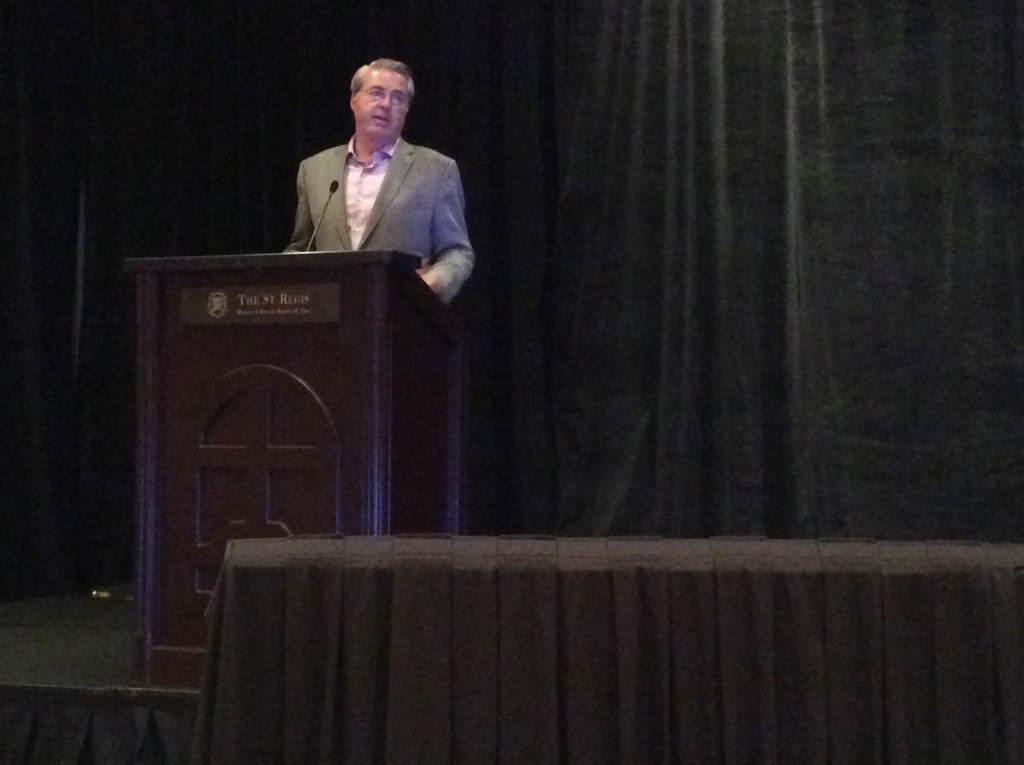It’s Time to Change Workers’ Compensation
Dave North from Sedgwick opened the Harbor Health Systems 2015 MPN Medical Directors meeting with a keynote address discussing the need for change in our approach to workers’ compensation claims handling.
It is important for us to keep perspective of the scope of what we do in workers’ compensation. Every day in California, 850 people will report a workers’ compensation injury. Our role is to be there to help those people recover from those injuries and resume their lives.
From the moment a claim is first reported, the injured worker is already embedded in the system. Someone has already made a decision that this appears to be a compensable workers’ compensation claim. The person may have already sought medical treatment. Before we even become involved, things are already in motion.
For years, workers’ compensation medical networks focused on two things: discount and proximity. We sent injured workers to the physician closest to the employer’s location who would agree to accept a discount on the treatment provided. Over time, we have realized that this focus is flawed and that, instead, we should be identifying the medical providers who produce the best outcomes for injured workers and incentivize these physicians to treat our workers by compensating providers fairly. We are also learning that, when we find these superior physicians, we need to get out of their way and let them practice medicine.
The industry also needs to evolve how we devote resources to claims. About 4 percent of claims cost over $100,000. These claims need to be the focus of our resources to ensure the best outcomes are delivered. For the majority of the remaining 90+ percent of claims, we should be able to direct the injured worker to the best physicians and these claims will resolve appropriately with minimal intervention. Our resources need to be focused on the claims that need them, not misappropriated on minor claims.
There is an alarming trend where litigation rates are increasing around the country. Much of this is driven by fear and mistrust on the part of the injured worker. They hear attorneys on television advertisements tell them the insurance companies cannot be trusted. As an industry we need to do a better job communicating with injured workers, letting them know that we care about them and we are there to assist them. We need to better explain the workers’ compensation system and the protections to injured workers that this provides. The way to overcome fear and mistrust is to provide better information and superior communication to the injured workers we are here to assist.
The Affordable Care Act provides significant opportunities to evolve the way medical care is delivered. There is an increased focus on outcomes, and physicians will be held accountable for the care they deliver and compensated based on the ultimate outcome they provide to patients. The focus will no longer be volume of treatment provided, but the quality of the care provided.
When it comes to change, there are three main categories of people:
- Innovators – These are the few people who are truely creating change. This is a very small group.
- Learners – These people take what the innovators created and work to evolve it. Most of the medical community falls into this category.
- Ignorers – Unfortunately, this is the categore where most people fall. They are uncomfortable with change and they have a tendency to ignore it as long as possible.
Workers’ compensation cannot evolve if we are unwilling to take risks and become innovators. If we are not the agents of change for the workers’ compensation industry, then change will not happen.
There is also a need for us to make accessing the healthcare and disability system easier. It should not matter whether the need for care arises from an occupational injury or non-occupational. We should work to integrate our approach so that the focus is on the patient and their needs and that decisions about which system pays for the benefits should be happening behind the scenes. More and more, employers are concerned about the experience that their employees have in the benefits system. They expect more of a focus on customer service. Their workers are their most valuable asset and they are looking for partners that understand that.


